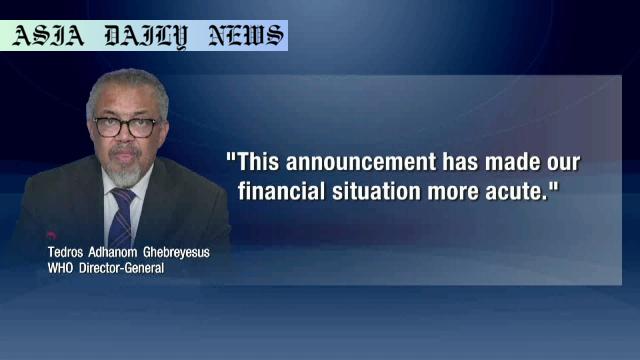WHO Cost-Cutting: WHO Director-General highlights financial challenges after the US withdrawal. Priorities and funding under review.
- WHO faces funding challenges after US withdrawal declaration.
- Director-General Tedros announces priorities under review.
- Recruitment freeze and cutting travel expenses highlighted.
- Virtual meetings to replace physical ones when possible.
- US decision described as a global health concern.

Introduction to the WHO Funding Crisis
In an unprecedented move, the World Health Organization (WHO) faces mounting financial challenges following the bold declaration by United States President Donald Trump to withdraw from the organization. The United States, historically the largest donor to WHO, contributes a significant portion of its budget. This decision has sent shockwaves through the global health community, forcing WHO to implement stringent cost-cutting measures.
Immediate Impact of the U.S. Decision
WHO Director-General Tedros Adhanom Ghebreyesus addressed the immediate implications of the U.S.’s withdrawal. In a recent email to WHO staff members, he explained how this decision has exacerbated the financial constraints of the organization, adding that their financial situation has become “more acute.” WHO now finds itself at a crossroads, needing to reassess budget allocation and identify areas of highest priority.
Cost-Cutting and Operational Adjustments
The director-general emphasized critical cost-cutting measures as solutions to navigate the crisis. Recruitment will be frozen for all but the most essential roles. Additionally, travel expenses will see dramatic reductions unless absolutely necessary for technical support missions. As part of these adjustments, the WHO will also transition to virtual meetings except under exceptional circumstances.
The Importance of U.S.-WHO Collaboration
Christian Lindmeier, the WHO spokesperson, expressed deep concern about the U.S.’s decision, framing it as a global health concern. He stressed the importance of information exchange between the WHO and the U.S.: not only does the WHO share critical information with the country, but it also receives equally vital epidemiological data. This reciprocal relationship has been integral in the global handling of disease outbreaks and crises.
The Broader Implications of Reduced Funding
Funding shortages risk jeopardizing the WHO’s ability to carry out its mandate in global health. Key activities such as health initiatives in developing countries, epidemic preparedness, and responses to emergencies could face delays or cancellations. Amid an ongoing pandemic, the timing of this funding challenge is particularly dire.
WHO’s Plan Moving Forward
The WHO is committed to finding creative solutions to these financial constraints without compromising its output. Director-General Tedros stressed that the organization will focus its reduced resources on the most pressing global health issues, ensuring continuity in essential programs wherever possible. The pivot to prioritization, while difficult, could incentivize efficiency within the organization.
Global Health Under Threat
Experts warn that reduced funding for the WHO could potentially place millions of lives at risk worldwide. Programs tackling malaria, tuberculosis, and other widespread diseases rely heavily on WHO’s support. In resource-poor settings, the WHO often plays a pivotal role in health delivery systems, and its financial instability impacts the most vulnerable.
Conclusion: A Call to Global Cooperation
As the WHO grapples with this funding setback, global health stakeholders are urged to rally together. Addressing these financial challenges will require both innovative problem-solving and enhanced international collaboration. The WHO’s work affects every corner of the globe, and its mission to foster health sovereignty must continue unimpeded.



Commentary
Assessing the Immediate Implications
The decision by the United States to withdraw from the WHO feels unprecedented for its symbolic and tangible consequences. While nations often debate the best methods to fund global health initiatives, the disruption caused by such a major donor stepping back is undoubtedly immense. This decision speaks to how intertwined global health and geopolitics have become.
Global Health Must Remain a Priority
The WHO’s current financial struggles underscore the pivotal role it plays in international health systems. Beyond treaty obligations and politics, the organization’s work-saving lives and controlling diseases must supersede national boundaries. Without proper funding, vulnerable populations may bear the brunt of this decision.
Balancing Politics and Public Health
There is an undeniable political undertone to this development, reflecting strained relations between the U.S. administration and international bodies. However, the focus must remain on what matters—efficiently dealing with pressing health crises. Global health organizations must continue advocating for cooperative strategies, even amid challenging circumstances.
Encouraging Optimism for the Path Forward
Despite the challenges, the WHO’s proactive measures reflect resilience and adaptability. Its commitment to prioritizing critical roles and utilizing technology, such as virtual meetings, shows that there is potential for emerging stronger. In this crisis lies an opportunity: to prove that global public health can triumph over financial adversity.